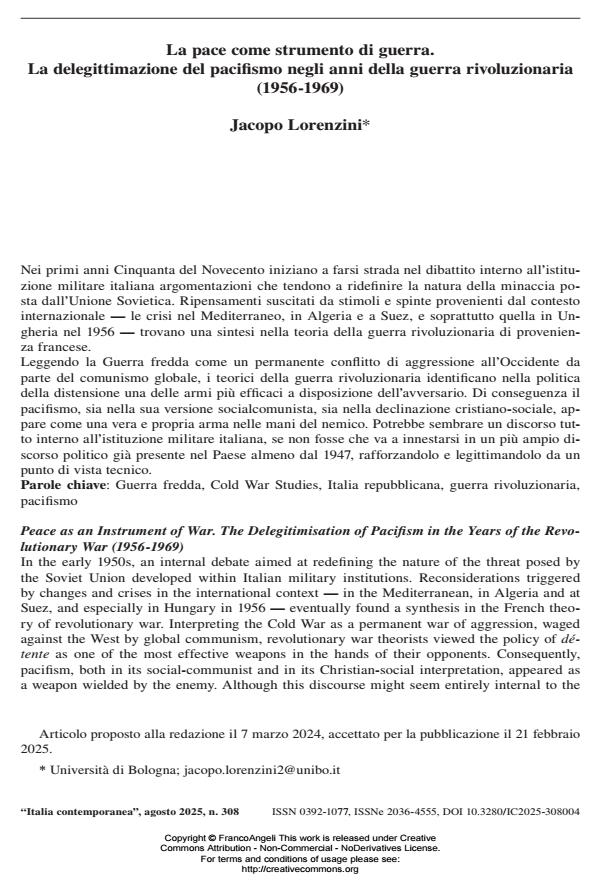Peace as an Instrument of War. The Delegitimisation of Pacifism in the Years of the Revolutionary War (1956-1969)
Journal title ITALIA CONTEMPORANEA
Author/s Jacopo Lorenzini
Publishing Year 2025 Issue 2025/308
Language Italian Pages 25 P. 80-104 File size 271 KB
DOI 10.3280/IC2025-308004
DOI is like a bar code for intellectual property: to have more infomation
click here
Below, you can see the article first page
If you want to buy this article in PDF format, you can do it, following the instructions to buy download credits

FrancoAngeli is member of Publishers International Linking Association, Inc (PILA), a not-for-profit association which run the CrossRef service enabling links to and from online scholarly content.
In the early 1950s, an internal debate aimed at redefining the nature of the threat posed by the Soviet Union developed within Italian military institutions. Reconsiderations triggered by changes and crises in the international context — in the Mediterranean, in Algeria and at Suez, and especially in Hungary in 1956 — eventually found a synthesis in the French theory of revolutionary war. Interpreting the Cold War as a permanent war of aggression, waged against the West by global communism, revolutionary war theorists viewed the policy of détente as one of the most effective weapons in the hands of their opponents. Consequently, pacifism, both in its social-communist and in its Christian-social interpretation, appeared as a weapon wielded by the enemy. Although this discourse might seem entirely internal to the Italian military institution, it was not. Indeed, it was embedded within a broader political discourse already present in the country since at least 1947, technically reinforcing and legitimising it.
Keywords: Cold War, Cold War studies, Contemporary Italy, Revolutionary War, pacifism
Jacopo Lorenzini, La pace come strumento di guerra. La delegittimazione del pacifismo negli anni della guerra rivoluzionaria (1956-1969) in "ITALIA CONTEMPORANEA" 308/2025, pp 80-104, DOI: 10.3280/IC2025-308004